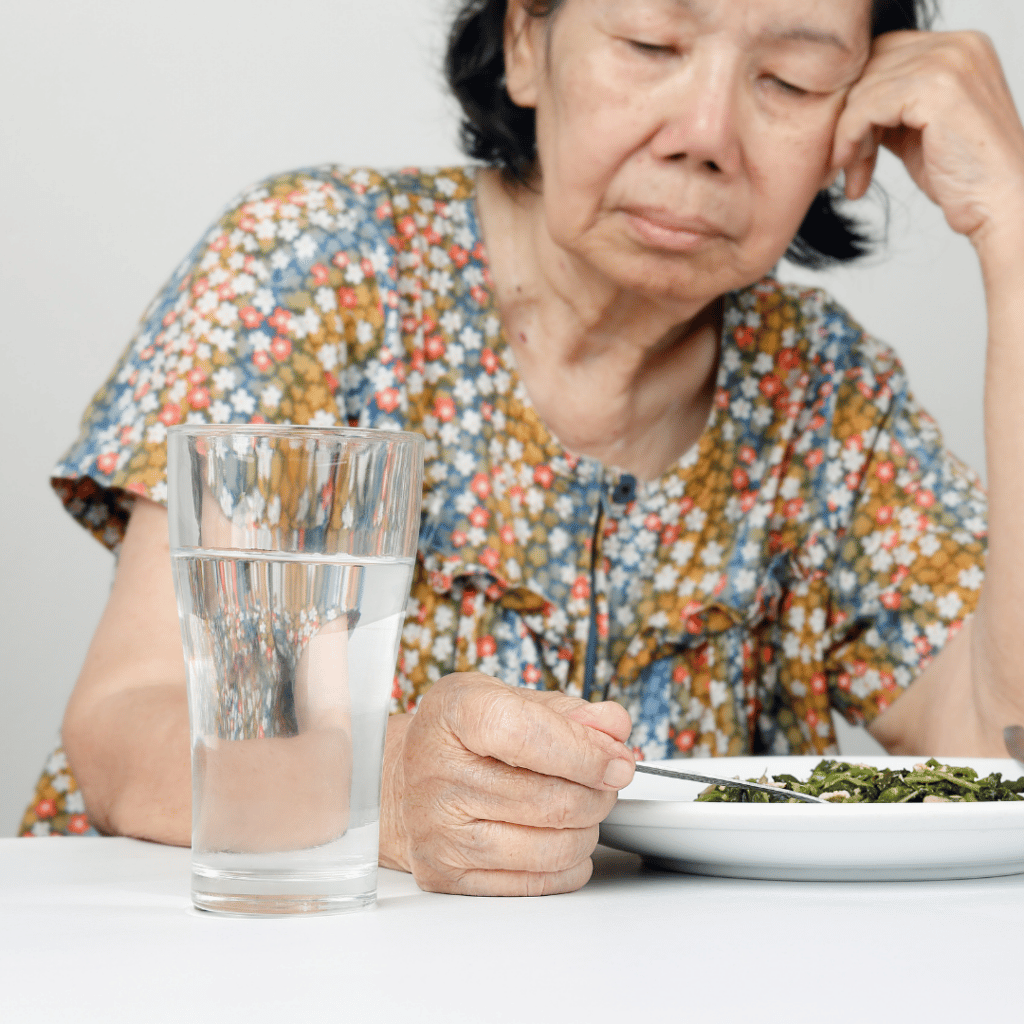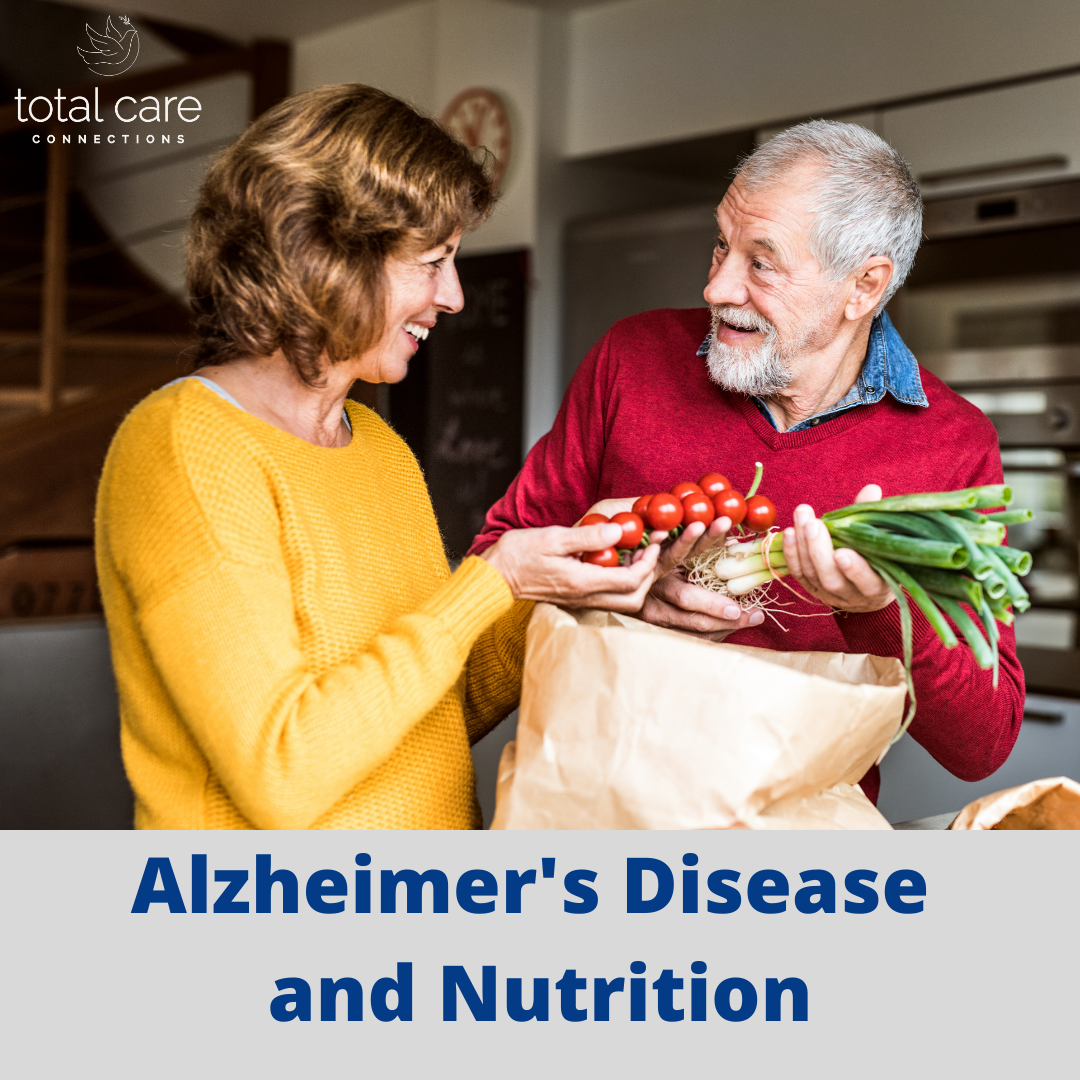November is Alzheimer’s Awareness Month, making it the perfect time to learn new ways to support your loved one or a family caregiver who is undoubtedly doing their best to navigate this devastating disease. Here at Total Care Connections, we want to add to the conversation about discussing a topic that often falls to the wayside of the dementia conversation: nutrition.
There are so many side effects and complications that come with Alzheimer’s disease and other types of dementia that any family caregiver can wonder which one to tackle first. When it comes to nutrition, there are multiple factors that can lead to dangerous weight loss, decreased immune response, and other challenges that come with malnutrition.

Work with an Experienced Dietician
The next time you are at your loved one’s physician’s office, ask for a referral to a dietician who has experience working with people who live with dementia. You’ll find that having this professional in your corner will give you confidence as you support your loved one through the disease process.
Dieticians can help you with personalized recommendations and recipes that can increase your loved one’s protein and calorie intake so that they can stay as healthy as possible.
Try Finger Foods
In the middle stage of the disease, you might notice your loved one cannot sit still or focus during mealtimes. They may have the desire to get up and move, especially when they are feeling anxious. This, of course, makes having a healthy meal a bit more challenging. But it is not impossible.
Focus on making foods that can be taken “on the go”. Keep a plate of finger foods at the kitchen counter and encourage them to grab something as they stroll past.
Boost Protein as Much as Possible
Here at Total Care Connections, we are big fans of getting extra protein into snacks and meals. Try adding yogurt and peanut butter to a smoothie on your own or if you don’t have the time to make a homemade version, hit the grocery store for protein-packed options.
While drinking a huge glass might turn off your loved one, they might be more interested in smaller servings throughout the day.
Increase Fluids
If your loved one spends a lot of time walking or pacing, they could use more hydration. In fact, anyone living with dementia could use more hydration during the day as the condition decreases their natural response to thirst. This just means they need a lot more cueing and encouragement from you to take another sip of water.
Experiment with different options for hydration to see which one they respond best to. Your loved one might prefer cold, iced water or they might drink more if it is at room temperature. Try offering a drink with a straw and a cup without one to see which one is accepted more enthusiastically.
Stay Flexible
Unfortunately, because Alzheimer’s disease is a progressive condition, you might find that something that worked well a month ago no longer does. This can feel frustrating, but it just means that you have a new opportunity to start to experiment once again.
Keep experimenting with different tastes, textures, and temperatures as you find the next nutritional support technique that will serve your loved one for the next stage of the disease.
We’re Here to Help
At Total Care Connections, we are passionate about serving seniors who are living with Alzheimer’s disease and working alongside family members to find the right interventions that keep the client healthy and happy. Meals are an important step in that equation and we treat food preparation and meals as a full sensory experience for those we serve.
Contact us today to learn more about our approach and how our services can support you and your loved one.
